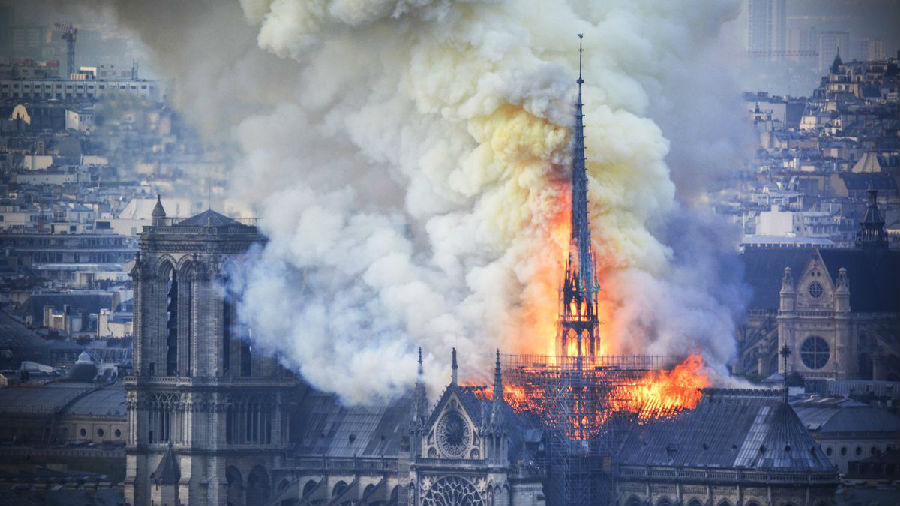JUDY WOODRUFF: Protesters took to the streets of Paris and other French cities this weekend, asking why billionaires and the government have rushed to the aid of the Notre Dame Cathedral after its terrible fire, while millions of ordinary French citizens are being squeezed economically. Income inequality is just one issue that may gain momentum in the aftermath of the fire. Stephane Gerson is the English-language editor of France in the World: A New Global History. In his Humble Opinion, the fire that ravaged Notre Dame should force us all to take a look at our other human-made crises.
STEPHANE GERSON, Institute of French Studies, NYU: This past Monday, my son sent me a text that read simply: Notre Dame. I didn't know what he meant. So he wrote again: It's on fire. Terrible. I turned on the TV and saw the cathedral burn, the spire collapse, the roof crash down. I watched Parisians and others cry along the Seine. For a while, I thought of moments in French history that involved the cathedral, 1287, the masons of Notre Dame traveling across Europe to show their excellence in stonecutting, or August 1944, Charles de Gaulle coming under sniper fire inside Notre Dame. This is what historians do in moments like these. We go to the past. But that night, I also thought about our present and our future. We are horrified because Notre Dame is the most poignant reminder in this brittle age of ours, this age of accelerating climate change and mass displacement, that nothing is eternal. Hasn't Notre Dame always been with us? Hasn't it always stood strong, stone rising into the skies, tower standing guard, its spire inviting us to aim for something higher? Monuments such as these enter our collective heritage.

The mythic cathedral is eternal and indestructible. We are eternal and indestructible. But, no, look, Notre Dame is burning. The spire is collapsing. The roof is crashing down, unless it is our roof, our collective roof that is crashing down. A century ago exactly, in 1919, the writer Paul Valery provided reflected on the massive destruction science had wrought during World War I. We civilizations, he wrote now know that we are mortal. Valery was telling us that our civilization can precipitate its own undoing. His warning is not mere history. We watched a cathedral burn. And though we know that cathedrals can rebuilt, we feel something deeper. Could it be the premonition that some disasters, some fires are so incandescent that nothing remains afterwards, not even civilization? There is a theory that disasters can shake the status quo. By suspending the usual order, by displaying its failures, they can open up new solidarities and maybe, in this case, collective responses to environmental destruction and forced migration. The emotions we experienced before a shared ordeal, shock and sorrow, empathy, immersion in the moment, can bring us together around a vision of the common good. I had been skeptical about this theory in the past, but the emotion we felt watching the cathedral burn, the emotion we felt imagining a world burning, might this emotion then allow us to avert further destruction, to work together towards a different future, not only for the cathedral, but also for human civilization? Notre Dame, it's on fire. Terrible. As I reread my son's texts, I have to hope that this time will be different.
JUDY WOODRUFF: French historian Stephane Gerson.












